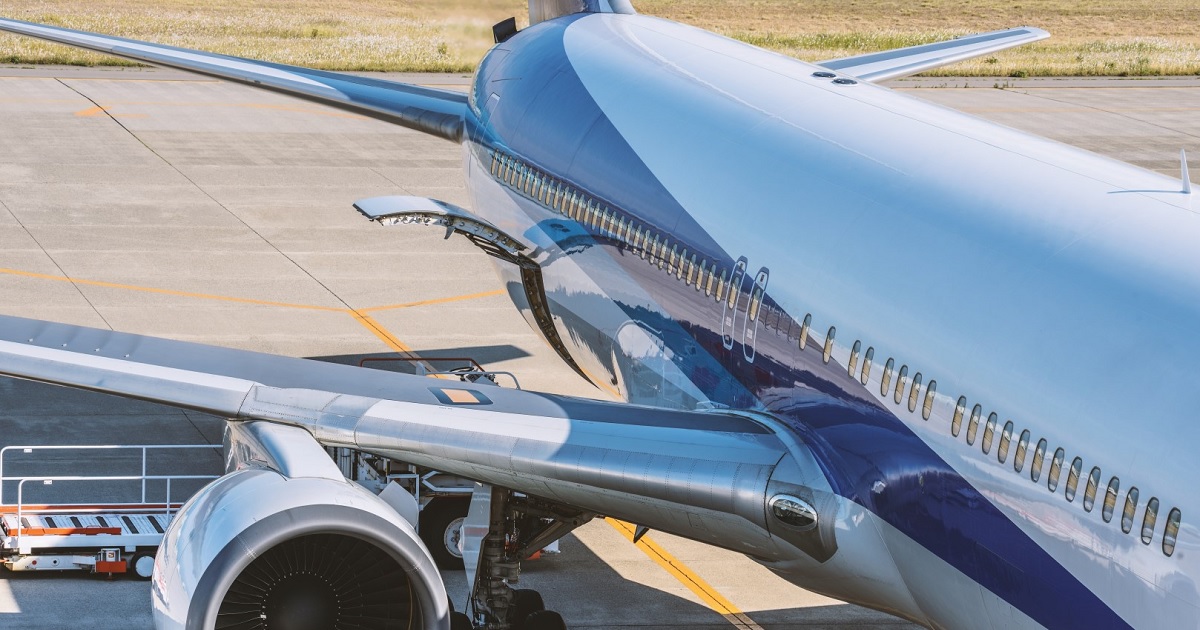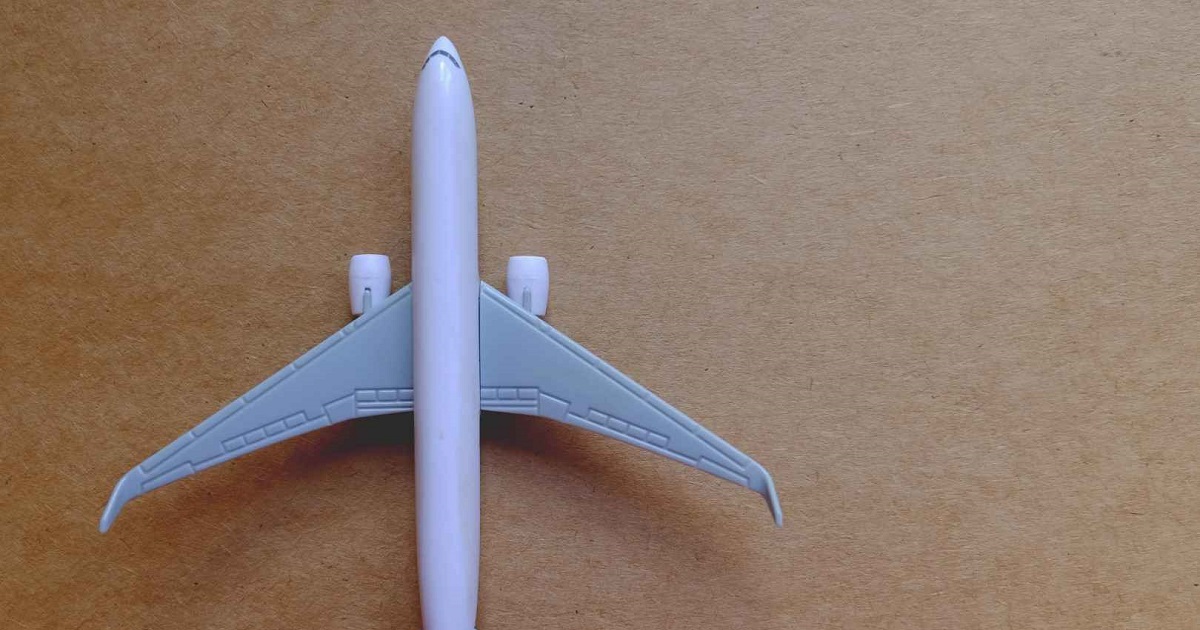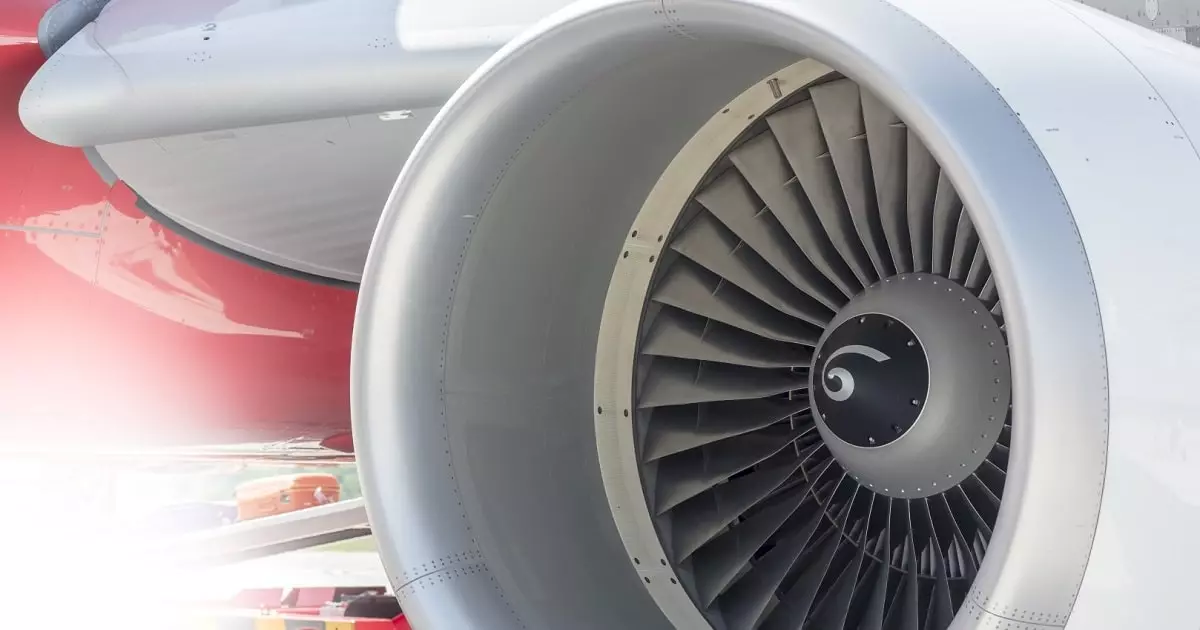
Air Transport
Article | July 15, 2022
Experience is Everything—human or mechanical. But Get it Right.
"AI's potential doesn't solely lie in its ability to improve business efficiency. Rather it lies in its ability to bridge the gap between businesses and customers. AI-powered communications enable for surged personalized and strengthening of information, stimulating customer trust and customer experiences."
- Kevin Gosschalk, CEO, Arkose Labs, in a conversation with Media 7.
Whether you make payments with a single tap in apps, ask Alexa to instruct in your smartphones, select Google assistance to find flights, or connect to airline companies, digital transformation is omnipresent. So, the appreciation comes naturally for how today's digital atmosphere transforms and affects our lives in every way.
Yes, you heard that right!
Using Google assistance to find flights is not the new way the industry uses AI. Instead, it has enhanced its way of AI usage into its process and operations. Like other businesses, aviation businesses are catching up well in using data and technology. With the help of these, they now create more compelling and prompter customer experiences.
The developments and revenues in the global aviation industry are skyrocketing. The industry expects almost 8.2 billion passengers to fly around the world by 2037. The rising numbers are because of digital transformation. The most interesting thing is aviation now has to manage high expectations of digital-savvy customers. It will be even more interesting now!
Before the blog breaks into discussing the futuristic airline customer experience, let's look at the flashback of the past customer experience scenarios (challenges) that prevailed in the airline industry.
Past Customer Experience Scenario in Airline
The aviation industry in 2018 recorded 4.4 billion passengers flying around the world. Furthermore, according to the IATA reports, the count is anticipated to reach 8.2 billion by 2037. But the industry is increasingly lacking behind in customer experience.
Complex booking procedures and missing out on the best flight offers because of complex app/website navigation and other potential customer services are issues raised in air travel today. Apart from this, customers also raise concerns over inflight infotainment systems. The systems merely do their job. Therefore, as many airport terminals are still empty, customer service representatives are working harder to overcome such issues.
As the industry has stepped into the fourth industrial revolution, AI rewards the best experiences for travels and other airline customer services. Now, airline marketers can find diverse AI-based digital solutions to sail through the cloud. And the findings are quite remarkable.
Let's come to the part where you will know how AI is helping the aviation industry scale its customer services.
How Can AI Enrich Airline and Scale Customer Services?
Airlines that leverage AI customer experience have had a significant advantage during the pandemic time. Their insights have been put into enriching the entire aviation business. Let's understand the 'how.'
Get Multiple Output in Seconds
When the demand for air fly rise, offering immediate services for customer handling teams becomes stressful. However, with AI, instances like this get a perfect solution.
AI can handle an infinite number of customers' demands at once. By leveraging AI-based digital solutions, you can scale up fulfilling airline operations in seconds. As a result, teams in your firm can easily diminish the increased demand for services and serve remarkable customer experience.
The benefit of AI can also be seen crosswise support channels. For instance, WestJet's ticket volume surged by 71% on Facebook Messenger and WhatsApp during the beginning weeks of COVID-19 disruption in North America. However, the airline kept its response time low as its virtual agent Juliet ultimately resolved 87% of tickets.
Identity New and Trending Issues
Aviation is an industry of challenges. Issues and obstacles keep knocking on the door of airline companies. In such cases, AI informs if there are any trending issues over channels. For example, during the COVID-19 outbreak, new onboard safety issues and questions towards social distancing surfaced for the first time. However, airlines have never come through about social distancing. So, by leveraging AI, they created a responsive plan for customers. They communicated the same through AI-enabled solutions on websites and applications.
In response to the coronavirus, Gartner suggests that companies should use chatbots in digital channels to focus on the most ordinarily asked questions to give solutions for customers.
Feedback Analysis
Air travel can be stressful at times, even for frequent and experienced travelers. For example, it could be passport-related or booking tickets, baggage checks, ticket prints, arrivals, departures, seat assistance, etc.
So, by analysis of data, artificial intelligence in customer experience learns about these pain points of airports and flight experiences. In this way, customer experience can be improved and enhanced simultaneously.
Then comes feedback. Using AI for feedback analysis, airlines can research the market. It can make informed decisions related to processes and operations.
"AI systems can quickly allow airlines to discover opportunities to intervene in the customer journey and turn a miserable experience into a delightful one. It also allows companies to respond faster in a synchronized and regulated way that is uniform with the business's values. Ultimately, we want to understand how an airline can fascinate a customer as well as where there is an abrasion in the customer journey and figure out how to fix it,"
- CEO of PureStrategy Inc. Briana Brownell
Briana highlights the growing relevance of natural language used in AI. Understanding technology in the processing and analysis of customer experience data thus allows businesses to explore the customer journey in their own words.
For example, ANIE, an AI assistance, can help customers find, book, and pay for flights.
Effective Communication
The speed of responsive communication to customer queries is highly considered to resolve issues. For example, airport issues like flight delays or baggage loss crop up quite often throwing. As a result, travelers usually get into a state of nervousness. However, when they do not get a response or explanation to their problems, they start considering other airlines for their future trips.
In these cases, AI software deployment can speed up and simplify services, automatically enhancing airline customer experience. In addition, effective customer emails with exact information can also solve significant issues and streamline employees' workflow using natural text.
Another way to automate and improve airline customer experience is chatbot development. Today, many airlines enhance their customer support with AI-powered chatbots on their websites and mobile applications.
The Business Insider’s research report says that by 2022, over 80% of airline businesses are likely to have chatbot automation implemented in operations.
These chatbots help passengers with bookings, managing flight schedules, and updating customers about general flight information. In addition, they can post queries and other types of assistance to get quick responses.
Self-Services at Airports
Easy self-check-ins, ticket booths, and overall communication (from booking to destination arrival) add to the comprehensive AI-based digital solutions.
The pandemic forced the aviation industry to witness the extraordinary rise of numerous contactless technologies. So, airports are now more focused on providing self-services for customers. These include contactless payments, luggage checks, robotic assistance for queries, and more like these.
Self-service systems in airports are critical automated systems. AI technology is installed to automate passenger journeys without any hurdles.
Today, airline companies and airports implement an end-to-end solution using artificial intelligence in customer experience to facilitate smooth passenger air travel and operations. In case of point, Delta Airlines, one of the world's largest global airlines, uses intelligent systems such as Fly to Gate by Thales. The system works with biometrics technology. The employees use it for the document scanning process to recognize and verify passengers at security checks.
Such technology reduces passenger check-in time and improves customer experience.
Future of AI Customer Experience in Airline Industry
There are many shreds of evidence that customers increasingly want a personal touch with their communications. They adore personalized services. Even airline companies are seeking profound connections with their customers. And this is the right time to act by offering personalized customer experiences.
Today, AI makes it possible for the entire airline industry to enhance customer experience with automation, provide self-service solutions, ensure safe air travel, and more. Technology is a powerful tool for airlines to make informed decisions that they couldn't take in the past few years. Now airlines can make decisions faster on essential decisions such as on pricing of tickets by analyzing data, enabling secure authentication of customers than before.
Ultimately, the success of artificial intelligence in customer experience is driven by having a deep understanding of different customer segments. By harnessing the power of conversational AI, airline businesses can improve their ROI, nurture long-term customer relationships, metrics being the core elements.
Frequently Asked Questions
How can airline companies improve their customer experience?
To improve customer experience, airline companies can follow these ways:
Focus on knowing the target audience
Meet unique and specific customer needs
Keep customers engaged on social media platforms
Make smart customer-targeted decisions
Be responsive towards customers
How does AI play its role in aviation concerning customer experiences these days?
AI plays a crucial role in helping customers in aviation to find the correct information more efficiently. It actively helps analyze customers' data and recommend services based on their browsing preferences about flights.
How does AI improve customer experience?
AI enables the power to strengthen customer engagement, encourage activities, and improve customer retention. Although not a replacement for human beings, it does help increase the efficiency of serving — like answering frequently asked questions, providing the correct information, and being available 24*7.
{
"@context": "https://schema.org",
"@type": "FAQPage",
"mainEntity": [{
"@type": "Question",
"name": "How can airline companies improve their customer experience?",
"acceptedAnswer": {
"@type": "Answer",
"text": "To improve customer experience, airline companies can follow these ways:
Focus on knowing the target audience
Meet unique and specific customer needs
Keep customers engaged on social media platforms
Make smart customer-targeted decisions
Be responsive towards customers"
}
},{
"@type": "Question",
"name": "How does AI play its role in aviation concerning customer experiences these days?",
"acceptedAnswer": {
"@type": "Answer",
"text": "AI plays a crucial role in helping customers in aviation to find the correct information more efficiently. It actively helps analyze customers' data and recommend services based on their browsing preferences about flights."
}
},{
"@type": "Question",
"name": "How does AI improve customer experience?",
"acceptedAnswer": {
"@type": "Answer",
"text": "AI enables the power to strengthen customer engagement, encourage activities, and improve customer retention. Although not a replacement for human beings, it does help increase the efficiency of serving — like answering frequently asked questions, providing the correct information, and being available 24*7."
}
}]
}
Read More

Defense and Space
Article | June 8, 2022
Although airlines only contribute to 2% of global emissions today, research indicates that this number could rise if air travel continues to grow. As such, airlines need to adapt and find new ways to become more sustainable. Successful implementation of eco-conscious strategies will see carriers achieve higher profits and maintain the trust of customers.
SimpliFlying has a long history of helping airlines craft the future of travel and we believe that addressing climate change is essential to rebuilding trust in the aviation industry.
Read More

Business Aviation
Article | December 28, 2021
As 2021 is a few months away from its end and is the beginning of a new year, it is hopeful that it will bring more positiveness for airline businesses. But what the industry has ahead? How will the new landscape of technology strategies in airline businesses look?
Or say, what will be the platforms for novel technology strategies in the aviation industry in the future?
Let’s have a quick read in the next!
What Airline Technology Strategies Will Look Like?
As you know, the airline industry saw a lot of disruption in 2020. But the circumstance also paved the way for promising and powerful new technologies.
Airline businesses are now turning the tech trends to their advantage. In this way, they can get a handful of opportunities to streamline operations. They could do this because the landscape of technologies is reshaping aviation.
For example, IATA recently calculated that the airline's revenue worldwidewould be more than half of what it was in 2019. That means the industry will witness a massive change due to emerging tech stacks. Its rising importance is influencing market leaders to make more informed decisions today. This is why it is critical to imply technology strategies in your business.
Thus, the focus is on the clients' strategic choices and investments. It will now depend on the implications of technology strategies.
How will some of the applied proactive technologies in business processes look like in the new normal?
This blog groups some of the newer technologies for the new normal in aviation. Explore them and take inspiration from the potential of technologies to revive your business and drive growth.
5 Tech Strategies to Reshape Airline Industry
Machine Learning with AI
Before the pandemic, the airline industry displayed an exceptional commitment to the potential of AI. Like, you must have seen the adoption of chatbots to communicate and other ways to improve operations.
Now, the usage of AI is soared, and its application is more profitable than before. The platform analyses a faster deployment of millions of operational data.
Mechanization
Mechanization technology in the airline industry is gaining thrust. Due to the rapid developments and advancements, several airline businesses are implementing it. As tools are becoming smarter, businesses will soon have completely automated operations. Automation will ease all the workloads, reduce manual intervention and errors to a high accuracy rate.
Real-Time Information Technology
Real-time information technology is a significant technological aviation strategy. It has the potential of improving airlines’ operation efficiency with the help of customized software usage.
Your business can drive growth by implementing custom software applications. But, as you know, to deliver customized and personalized solutions, it is essential to understand clients’ expectations and preferences. So, how is this technology going to take you through it? Let’s understand in the following ways:
Personalized solution: Custom software applications are developed with the help of the updated information collected by knowing customer’s preferences. In this way, you can create personalized or customized solutions for your clients.
Technical Excellence: Having an expert development team across all application stages is a plus in your business. The cutting-edge tools will benefit from fulfilling clients’ demands
Higher business value realization: It's critical to properly align real-time information technology with your business processes. This will deliver solutions on time with the right approach to your client. This way, your business can generate higher value and build trust in long-term relationships with clients.
Analytics
Analytics is the most urgent technological need for airline businesses in the future. Aacquiringe accurate data, predicting losses, and evaluating clients’ needs will be the next transformational scenario in the airline industry.
Implementing this technology will allow airlines to streamline their operations ahead of time. It will also help to take realistic measures to bring down losses that occurred due to the pandemic.
Analytics are also effective in predicting and preparing for the results of business efforts. Data-backed analytics would provide insights to pinpoint geo-specific interventions to gain higher ROI.
Agility
The implementation of technology strategies has encouraged airline businesses to become agile. At the same time, some leading industry market players have now shifted their business to operate in agility. So, it's expected that this trend will continue beyond 2021.
The aviation industry caters to a vast array of products and services. It works to deliver seamless operations and services. The adaptation of agility requires multiple systems to interact and exchange data. So, with the growing rate of partnerships, agility is the need of the hour.
Today, in several airline businesses, teams work in separate locations. Being agile helps them to win adverse circumstances. It also builds the trust of audiences by keeping transparency in work and responding to queries faster.
With this, the emerging technology is also expected to help track the progress of smaller efforts and proactively handle the metrics for projects coming in. In addition, the technology ensures that you can constantly inspect functions and deliver quality products or services.
Lastly, since the budget is one of the top concerns of airline businesses, the development of agile technology strategies helps to keep a check on expenses. Therefore, by tracking the expenditure, it will be easier to plan future budgets adequately.
Frequently Asked Questions
What are other critical new technologies that will transform aviation?
According to IATA’s report, the aviation industry will witness a drastic transformation. Some important new technologies such as cybersecurity, 3D printing in manufacturing, robotics, and biometrics will enter in the future.
How has technology enhanced the aviation industry?
Technology has enhanced aviation in manufacturing. New techniques have created new aircraft with improved fuel consumption and reduced environmental impact. In terms of operation, automation and AI are the new takeovers in aviation.
Why is technological development important for aviation?
Technological development is important to improve the efficiency of airline operations. The need for better connectivity, enhanced travel experience, reduced fuel costs, budget alignment, control over expenses has urged technology to step in.
{
"@context": "https://schema.org",
"@type": "FAQPage",
"mainEntity": [{
"@type": "Question",
"name": "What are other critical new technologies that will transform aviation?",
"acceptedAnswer": {
"@type": "Answer",
"text": "According to IATA’s report, the aviation industry will witness a drastic transformation. Some important new technologies such as cybersecurity, 3D printing in manufacturing, robotics, and biometrics will enter in the future."
}
},{
"@type": "Question",
"name": "How has technology enhanced the aviation industry?",
"acceptedAnswer": {
"@type": "Answer",
"text": "Technology has enhanced aviation in manufacturing. New techniques have created new aircraft with improved fuel consumption and reduced environmental impact. In terms of operation, automation and AI are the new takeovers in aviation."
}
},{
"@type": "Question",
"name": "Why is technological development important for aviation?",
"acceptedAnswer": {
"@type": "Answer",
"text": "Technological development is important to improve the efficiency of airline operations. The need for better connectivity, enhanced travel experience, reduced fuel costs, budget alignment, control over expenses has urged technology to step in."
}
}]
}
Read More

Business Aviation
Article | January 28, 2022
The UK government has announced that from 11th February, fully vaccinated passengers arriving into the country will no longer have to take COVID-19 tests on arrival. The news follows the removal of pre-departure testing for fully vaccinated UK-bound passengers this month.
The relaxation of testing measures is something the aviation industry has been actively campaigning for, as it removes barriers to travel. Just today, IATA distributed a press release advocating for similar moves to be made by further governments. It cited a study focused on the UK carried out by Oxera and Edge Health which found that because Omicron is now highly prevalent in the UK, “if all travel testing requirements were removed there would be no impact on Omicron case numbers or hospitalizations.”
Read More